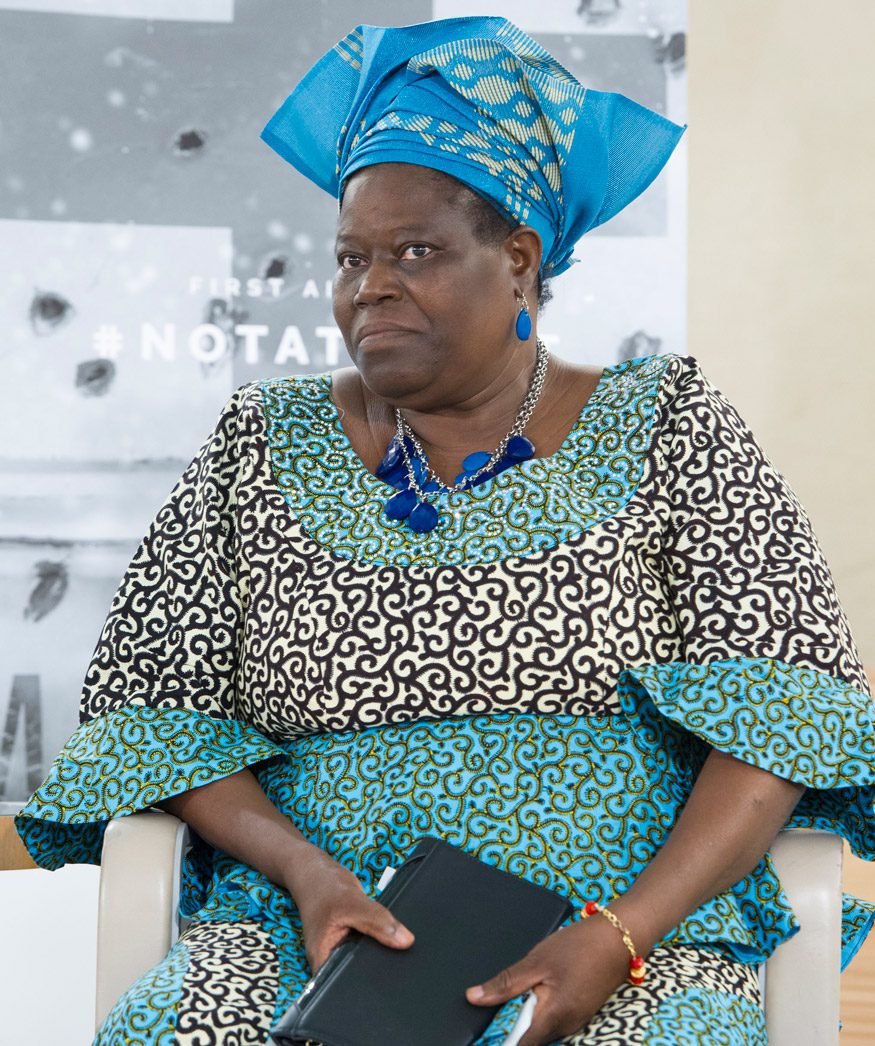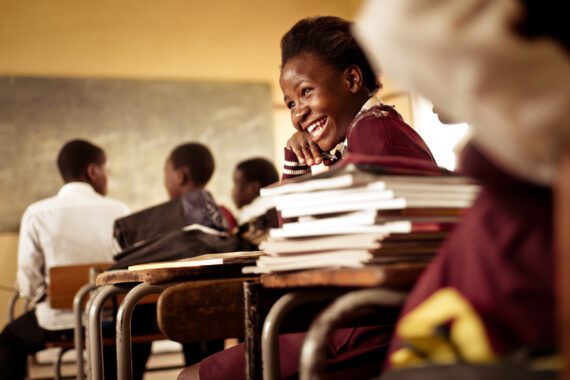This story is featured in the 2019 Hunger Report: Back to Basics
In April 2014, much of the world was appalled by the kidnapping of 276 girls from a secondary school in the town of Chibok in northern Nigeria. The region is a stronghold of the terror group Boko Haram. They were not the first girls abducted for daring to defy Boko Haram’s prohibition of female education, and sadly, they have not been the last.
Nearly five years later, more than 100 girls from the Chibok school remain missing. Some of those who escaped or were freed sought help from Dr. Rebecca Dali, who runs the Center for Caring, Empowering and Peace Initiatives (CCEPI). Some of the girls have been rejected by their families and communities because they are rape survivors who have given birth to children whose fathers are terrorists.
Dali founded CCEPI in 1989 to help Nigerian women, children, and orphans. Dali and her colleagues at CCEPI not only offer treatment for the traumas the Chibok girls have endured, but also enable them to learn skills and offer them tools to improve their ability to earn a living.
Dali offers herself as an example to the girls of what they are capable of doing. “I have walked the same path that you are going through,” she tells them. “My history is terrible, but I did not lose hope, so I don’t want you to lose hope.” Dali was raped when she was 6 years old. When she turned 8, her father told her that she must get married to help support the family. She wanted to stay in school, so she ran away. Dali ultimately earned a Ph.D. and has written books documenting what happened to people whom CCEPI has cared for over the decades.
In 2017, Dali was awarded the Sergio Vieira de Mello Award, named for the U.N. High Commissioner for Human Rights who was killed in Iraq in 2003. “Dr. Dali’s access into the local community and academic research have been invaluable to the advocacy community in the U.S. as we amplify the voices of those affected by violence in northeast Nigeria,” says Nathan Hosler, director of the Office of Peacebuilding and Policy for the Church of the Brethren in the United States.
Ekklesiyar Yan’uwa a Nigeria (Church of the Brethren in Nigeria) is the church’s largest national body. Samuel Dali, Dr. Dali’s husband, served for many years as president of the Church of the Brethren in Nigeria, and most of the kidnapped Chibok girls are members. In addition to support from the church, CCEPI receives support from other donors, including USAID, the European Union, the U.N. Refugee Agency (UNHCR), and the International Rescue Committee.
Dali has had many encounters with Boko Haram and has paid a terrible price for treating its victims. In 2014, the group kidnapped her son. He has not been heard from since, and she presumes that he is dead. Despite the dangers, Dali and CCEPI remain committed to their ministry. As she told an interviewer, “If my organization is not there, who will go?”



